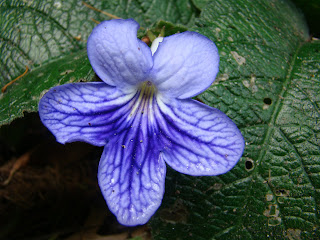
In his U.S.A best-selling book, "Last Child in the Woods", Richard Louv coined the term 'Nature Deficit Disorder' (NDD) and inspired an international movement to reconnect children with Nature. Mr Louv highlighted concerns that resonated intuitively with multitudes of today's parents - that children disconnected from the Natural World are children at risk. The consumerist society takes their children for walks in shopping malls instead of the mountains. It provides passive entertainment with children sitting still, indoors, absorbed on screens - instead of running, climbing, swimming, slipping and sliding outside in woods, streams, meadows and trees. It substitutes 'Animal Planet' for real-life encounters with wild-living birds and beetles, porcupines and caracals. In crucial ways, the child of this consumerist world is a child raised in a special kind of poverty who manifests real and long-lasting symptoms of its disadvantage.

There's an abundance of research that tells us what we know anyway - Nature is good for human beings. We understand and connect to the wild and wordless essence of ourselves when we deeply and truly experience the greater wild and wordless context of our World. There is no possible virtual, technological solution to meet this need. To provide our children with opportunities for this essential part of whole human development, we have to get them outside into the Natural World - often.
It is arguable, that this generation of children needs this more than any other - they are facing unprecedented environmental challenges in their lifetimes. We cannot expect them to grow into adults responsible for sustainable living and sustainable human development if we are raising them in conditions conducive to Nature Deficit Disorder.
It is this realisation that is motivating mothers, fathers, grandparents, neighbours, environmental educationalists, non profit organisations, businesses and governments to organise and support formal and informal groups, clubs, networks and programmes that involve families in Nature walks, hikes, camps, adventures and holidays. Being in Nature, experiencing wild places, observing and connecting with all aspects of the Life around us is increasingly recognised as a vital part of family well-being. It is not something that parents can leave up to schools. As role models, as the nurturers of our children's development, we need to be actively fostering their connection to Nature on a daily basis.
Big picture ideas, support and connections can be found at: Children and Nature Network - http://www.childrenandnature.org/
More about Richard Louv and "Last Child in the Woods" at: http://richardlouv.com/
I love this stunning Cape Town-based initiative: http://www.kidsofnature.org/

No comments:
Post a Comment